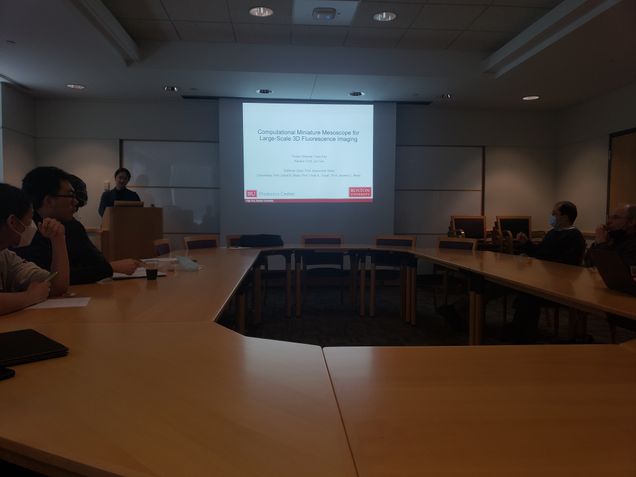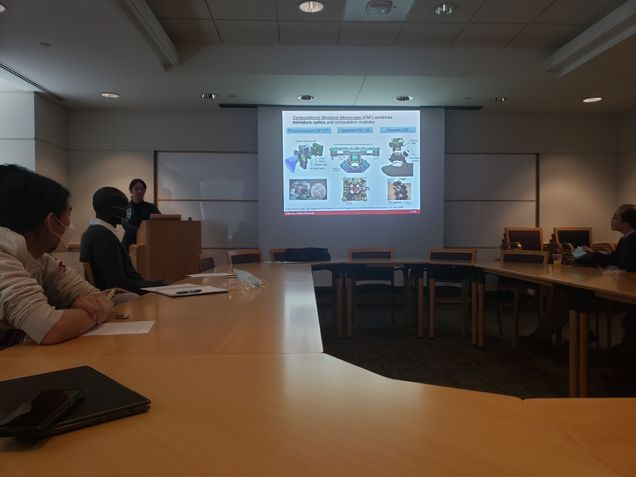Yujia defended PhD Dissertation!


Title: Computational Miniature Mesoscope for Large-Scale 3D Fluorescence Imaging
Presenter: Yujia Xue
Date: Thursday, March 31, 2022
Time: 11:00am to 1:00pm
Location: 8 Saint Mary’s Street, Room 339
Advisor: Professor Lei Tian, ECE
Chair: Professor Abdoulaye Ndao, ECE
Committee: Professor David A. Boas, BME/ECE; Professor Vivek K. Goyal, ECE; Professor Jerome C. Mertz, BME/ECE.
Abstract:
Fluorescence imaging is indispensable to biology and neuroscience. The need for large-scale imaging in freely behaving animals has further driven the development in miniature microscopes (miniscopes). However, conventional microscopes and miniscopes are inherently constrained by their limited space-bandwidth-product, shallow depth-of-field, and inability to resolve 3D distributed emitters. In this dissertation, I present a Computational Miniature Mesoscope (CM2) leveraged by two computation frameworks that overcomes these bottlenecks and enables single-shot 3D imaging across a wide imaging field-of-view (7~8 mm) and an extended depth-of-field (0.8~2 mm) with a high lateral (7 μm) and axial resolution (25 μm). The CM2 is a novel fluorescence imaging device that achieves large-scale illumination and single-shot 3D imaging on a compact platform. Its expanded imaging capability is enabled by computational imaging that jointly designs optics and algorithms. I present two versions of CM2 platforms and two 3D reconstruction algorithms in the dissertation. In addition, pilot studies of in vivo imaging experiments using a wearable CM2 prototype are conducted to demonstrate the CM2‘s potential applications in neural imaging.
First, I present the CM2 V1 platform and a model-based 3D reconstruction algorithm which performs volumetric reconstructions from single-shot measurements. The mesoscale 3D imaging capability is validated on various fluorescent samples and analyzed under bulk scattering and background fluorescence in phantom experiments. Next, I present and demonstrate an upgraded CM2 V2 platform augmented with a deep learning-based 3D reconstruction framework, termed CM2Net, to enable fast 3D reconstruction with higher axial resolution.The CM2 V2 design features an array of freeform illuminators and hybrid emission filters to achieve high excitation efficiency and better suppression of background fluorescence.The CM2Net combines ideas from view demixing, lightfield refocusing and view synthesis to achieve reliable 3D reconstruction with high axial resolution. Trained purely on simulated data, I show that the CM2Net can generalize to experimental measurements. The key element of CM2Net’s generalizability is a 3D Linear Shift Variant model of CM2 that simulates realistic training data with field varying aberrations. The CM2Net achieves a 10 times better axial resolution at 1400 times faster reconstruction speed compared to the model-based reconstruction.
Built from off-the-shelf and 3D printed components, I envision the low-cost and compact CM2 can be adopted in various biomedical and neuroscience research. The CM2 and the developed computational tools may bring impact to a wide range of large-scale 3D fluorescence imaging applications.